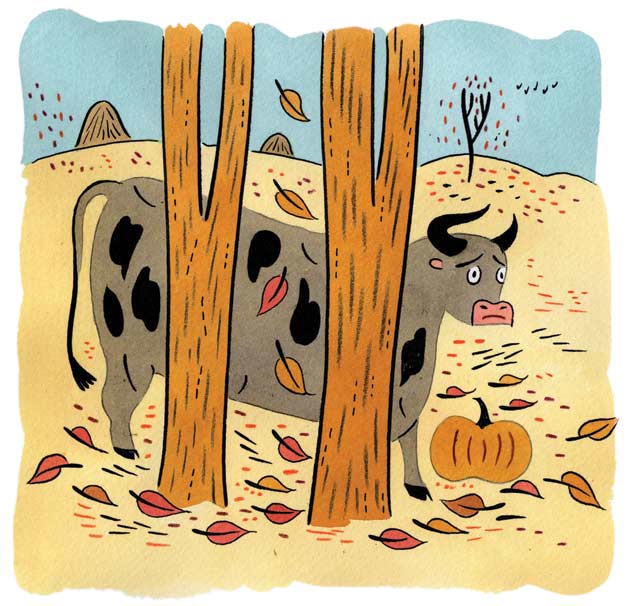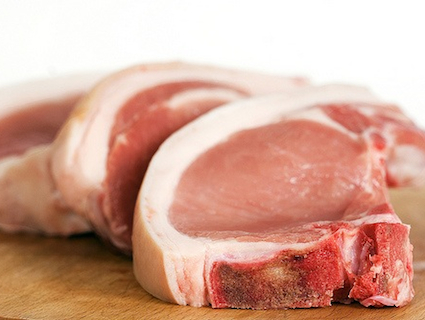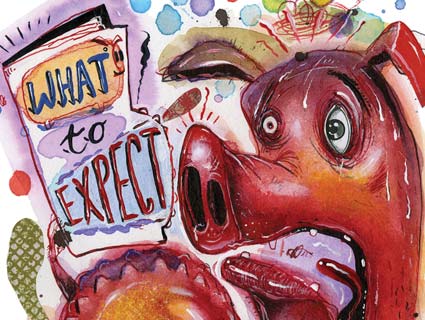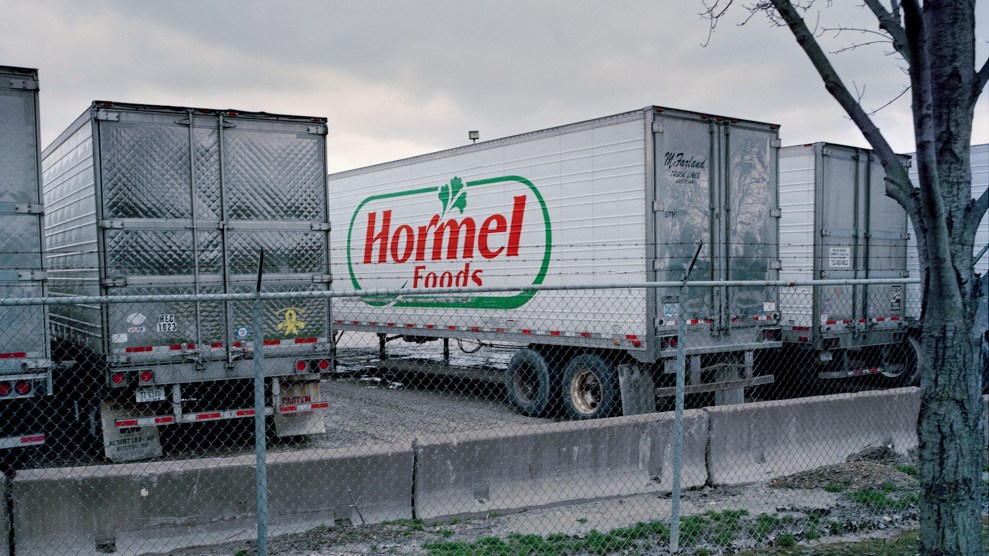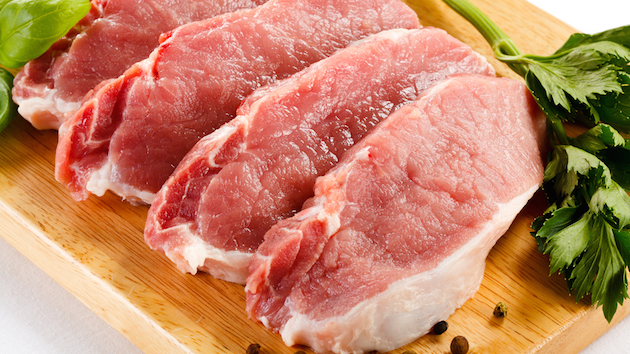
<a href="http://www.shutterstock.com/pic-116906779/stock-photo-raw-pork-on-cutting-board-and-vegetables.html?src=L89wCO9LUOKgpjcioBQC5w-1-11">Jacek Chabraszewski</a>/Shutterstock
Late Tuesday afternoon, Perdue, the nation’s fourth-largest chicken company, snapped up the famed niche meat producer Niman Ranch, best known for its pork grown without antibiotic or other pharmaceutical growth enhancers, and also a player in the alternative beef, lamb, and egg markets. Eschewing the vast hog factories known as CAFOs (concentrated animal feeding operations), Niman requires that its hogs “must be raised on pasture or in bedded pens.”
The deal stunned the foodie Twittersphere, but it’s really not surprising. The United States remains one of the globe’s most carnivorous nations, but our appetite for meat has waned in recent years. On a per capita basis, we ate nearly 10 percent less meat in 2014 than we did in 2004. The huge companies that dominate the meat industry have strained to maintain profit growth amid this slowdown, mainly by cannibalizing competitors—combining operations in order to cut costs—and by focusing on exports to countries where meat demand is surging. In gobbling up Niman, Perdue is pursuing the other strategy for generating growth in a stagnant market: buying into a rare segment that’s growing rapidly. Sales of meat that can be marketed as organic, pasture-based, antibiotic-free, etc., are bucking the overall trend and growing rapidly.
Also, Perdue’s move doesn’t exactly count as a huge company moving a small, purist operation into the corporate maw. Nearly a decade ago, Niman’s founder, the legendary California pasture-based rancher Bill Niman, cut ties with his namesake company after having sold a controlling interest in it to a private equity firm. “I left Niman Ranch because it fell into the hands of conventional meat and marketing guys as opposed to ranching guys,” he told Business Insider last year. “You can’t really ferret out how [the cattle] are being raised [now].” Until its sale to Perdue, Niman Ranch was owned by a private equity firm called LNK Partners, whose portfolio includes the restaurant chain Au Bon Pain as well as several fitness companies.
Niman isn’t Perdue’s first lunge into the alt-meat market. Back in 2011, the company bought the organic-poultry processor Coleman Natural. Perdue has also been steadily pushing its own massive chicken production away from reliance on routine antibiotic use, one of the meat industry’s most reckless practices. In 2014, Perdue announced that it was raising 95 percent of its birds without antibiotics deemed important to human medicine by the Food and Drug Administration. This summer, the company claimed that more than half its birds are raised completely without antibiotics.
Perdue’s Niman buy comes just months after pork giant Hormel, known mostly for down-market Spam, dropped $775 million to gobble up Applegate, Niman’s antibiotic-free/organic competitor.

